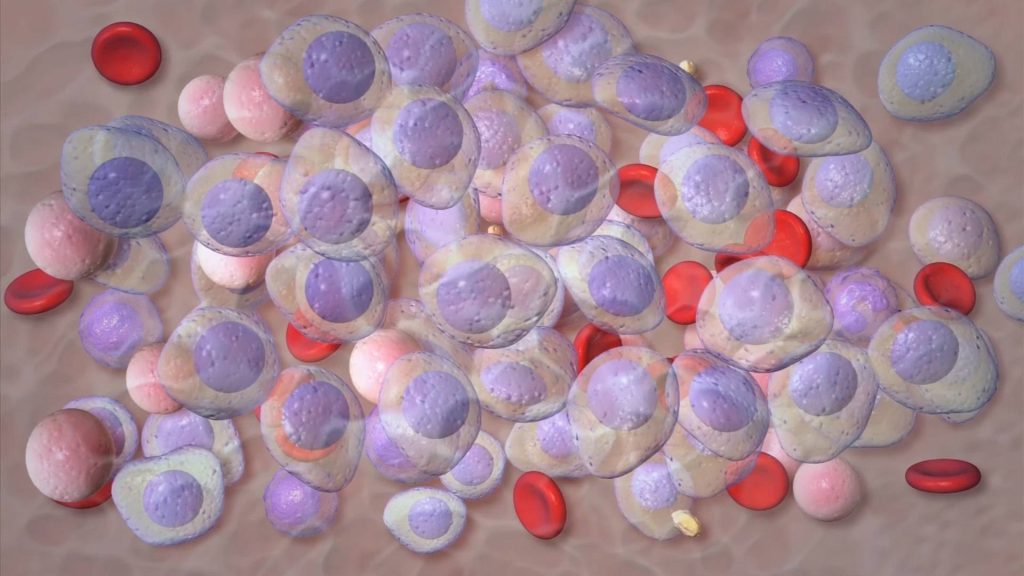A phase 3 clinical trial has unveiled a promising treatment for high-risk smoldering multiple myeloma, (SMM), a precancerous condition that can progress to active multiple myeloma, a type of blood cancer. The study, led by S. Vincent Rajkumar, M.D., a hematologist at Mayo Clinic Comprehensive Cancer Center demonstrated that daratumumab, a monoclonal antibody targeting CD38 on myeloma cells, significantly reduces the risk of disease progression and improves overall survival.

Published in the New England Journal of Medicine the multicenter AQUILA trial enrolled 390 patients with high-risk SMM. Participants were randomly assigned to receive either daratumumab or active monitoring. After a median follow-up of 65.2 months, results showed a 51% reduction in the risk of disease progression or death for patients receiving daratumumab.
At five years, 63.1% of patients in the daratumumab group remained progression-free, compared to 40.8% in the active monitoring group. Survival rates were also higher, with 93% of daratumumab patients alive at five years compared to 86.9% in the monitoring group.
"These results are a major advancement in the treatment of high-risk smoldering multiple myeloma," said Dr. Rajkumar. "For the first time, we have a treatment that can significantly delay or prevent progression to active disease, offering patients a longer, healthier future."
While the most common side effect was mild hypertension, no new safety concerns were identified, underscoring the treatment's potential as a safe option.
This groundbreaking study provides strong evidence for the use of daratumumab in high-risk SMM, marking a new era in managing this challenging condition. Patients are encouraged to discuss this option with their healthcare providers to determine if it aligns with their individual needs.
Read more details on Mayo Clinic News Network
 Connect
Connect
 Connect
Connect
With an M Spike as high as 2.7 (currently at 2.2) I have been monitored for MM for at least a dozen years. At 72, I'm not sure whether it will come my way, however I do have a cautionary tale to share. Diagnosed with NMZL Non Hodgkin's lymphoma in 2007 I received chemo including Rituxan with follow up Rituxan for seven years. During that time I was frequently ill with sinus, ear, throat, and lung infections...particularly pneumonia. As a result I saw an immunologist who did a challenge study to see whether my body was able to produce antibodies to fight infections. It doesn't The condition is known as hypogammaglobulanaemia.(sp) Vaccines don't work. I am a woman who always wears a mask in indoor public places. As a result of this diagnosis, I receive IVIG every three weeks. I still have significant infections, especially pneumonia, but am so very grateful for the IVIG; it has literally been a lifesaver. So...back to the cautionary tale. The immunologist informed me that 7% of those on long term Rituxan develop hypogammaglobulanaemia. I'm not sure daratumumab is in the same category, but the "mab" portion in the spelling would be a cause for concern, as Rituxan is scientifically known as Rituximab. Research the side effects...they can be life altering to say the least.